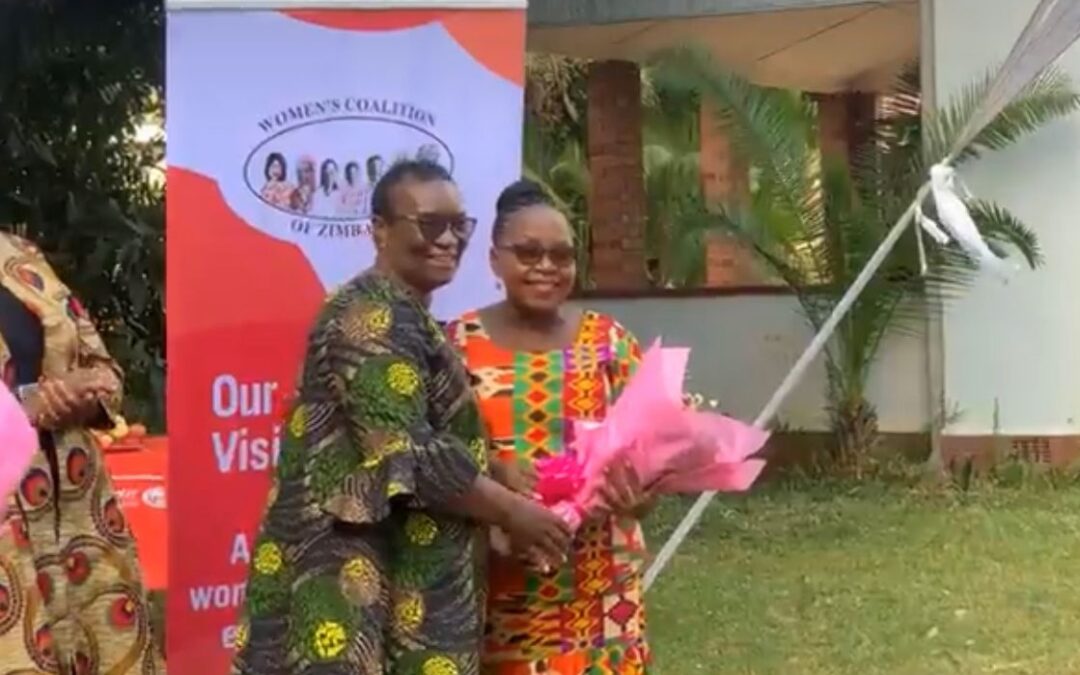This Thursday 6th of July 2023, Tag a Life International (TaLI) had the opportunity to attend the Kwa-Zulu Natal Provincial Legislature Women’s Caucus Study Tour meeting at the Women’s Coalition of Zimbabwe (WCOZ) headquarters. Following the unfortunate news of Zimbabwe’s dismal parliamentary representation, numbers for women which stood at 11% women candidates out of the 210 contested national assembly seats, the KZN Women’s Caucus’ Chairperson, Honourable CQ Madlopha, expressed her sympathy and reassurance of unity with the women of Zimbabwe during this trying election season. Along with Zimbabwe’s Women’s Parliamentary Caucus (ZWPC), the two caucuses explored some of Zimbabwe’s women-led and women-focused organisational and parliamentary projects throughout the first week of July and exchanged some of their own experiences in their respective governments.
Zimbabwe’s Electoral Commission (ZEC) released the final candidate list for the country’s August 2023 elections last Friday, June 30th. The deficient number of women on the candidate list sparked widespread disappointment as it not only means underrepresentation for 52% of Zimbabwe’s population (women) but is also a blatant violation of sections 17, 56 and 80 of the C onstitution of Zimbabwe which call for gender equality in all sectors including politics (Chikandiwa 2023).
In the spirit of collaboration and exchange, the KZN Women’s Caucus shared some of the protocols put in place to ensure equal political representation, as the Republic of South Africa’s constitution also calls for 50-50 representation in government. To tackle the lack of resources, especially financial, hindering women from participating in politics, the KZN caucus explained that along with the ruling party has put a 50-50 representation requirement as well, the overall government has specific nomination regulations in place that ensure diversity in terms of gender, age, and socio-economic background. This allows more women and youth to participate and run for office without financial or background discrimination. In addition, South Africa’s Independent Electoral Commission gives Political Party Funding based on representation and size; incentivizing the inclusion of women in political parties and office.
Members of the Women’s Coalition of Zimbabwe also raised the idea that women’s campaign trails should also be intentional in including women in multiple ways such as employing women on the campaigns or buying from women-owned businesses, to allow all women to participate in the process outside of just running for office. Such discussions not only strengthen the need for women to come together, but they educate women in leadership on ways to open the door for their fellow women to fill the spaces they are usually marginalised from. The struggle for equal representation will not be discouraged by this year’s election setback; however, it will be awakened to be more intentional and united on all forefronts.
TaLI was grateful to have been part of this empowering discussion as it affirmed the importance of our Adolescent Girls and Young Women (AGYW)-focused programs such as the Leadership Economic and Mentorship Hubs and AGYW-Africa programmes that equip young women with the voice, agency, and tools to lead in their communities and empower others to facilitate change in their own lives and society. It is important to note that although women are not only interested in running for office, they can contribute to their political participation through business, NGOs, education, and other sectors, hence women across the country and continent must unite across all industries to enhance their representation and empowerment in socio-economic and political spaces in their respective societies.

